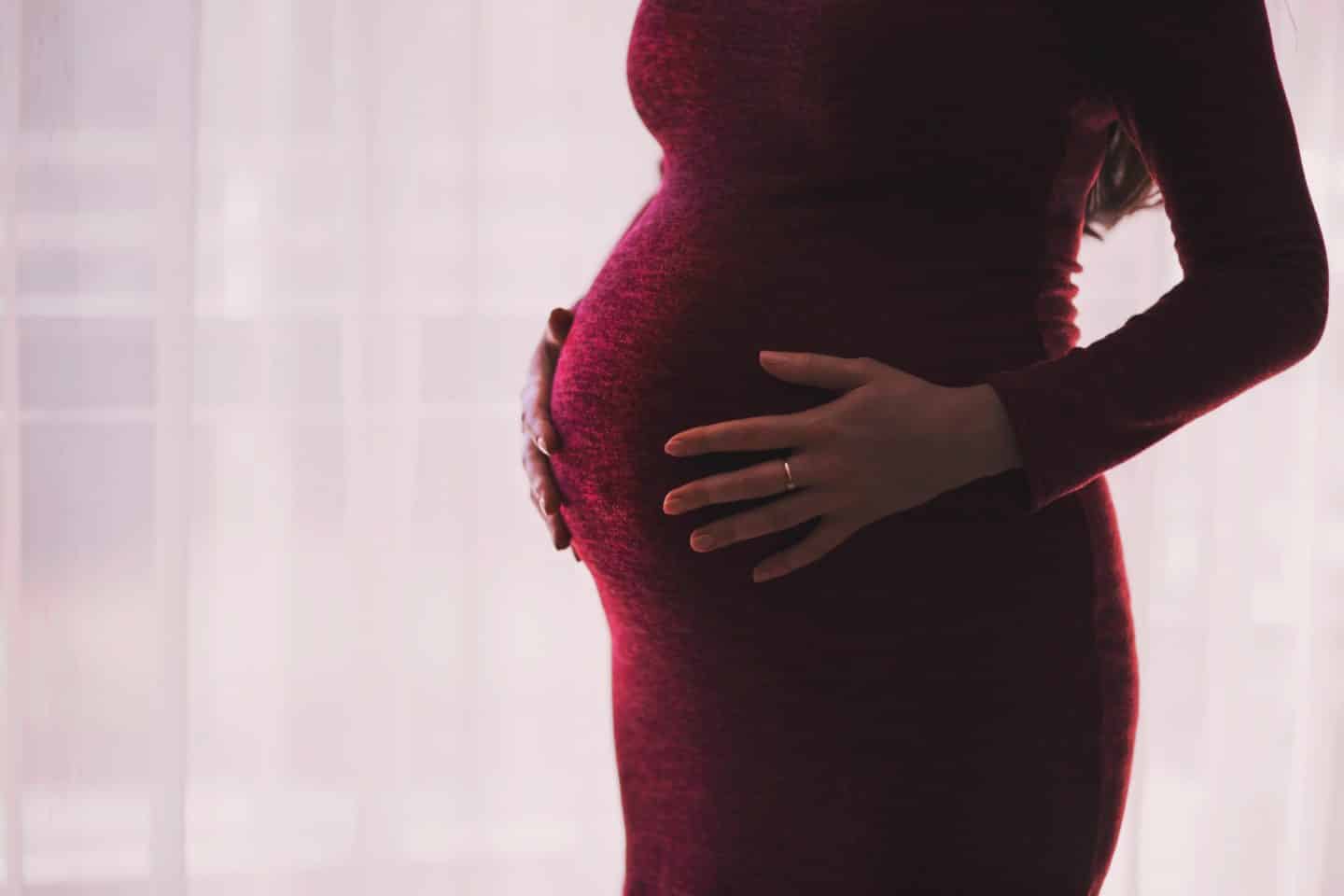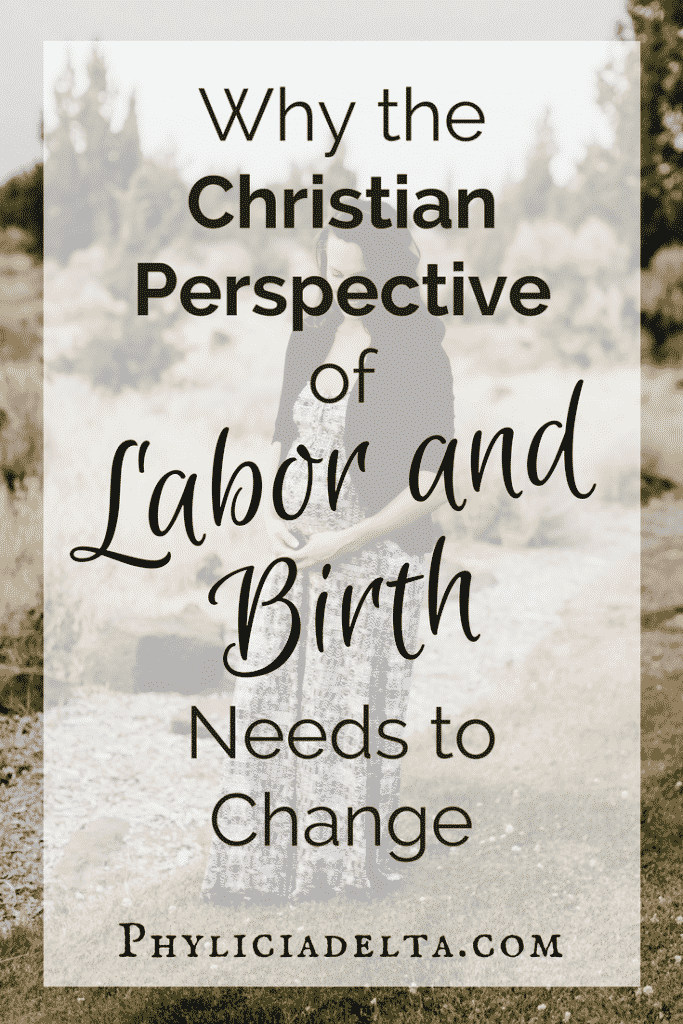The Christian conversation surrounding labor and birth differs little from the world’s. We throw showers, give gifts, and sympathize over morning sickness; but when it comes to birth itself, the conversation remains dominated by New Age (Eastern religious, pantheistic, and earth worship-focused) influences. One look at the Instagram hashtags reveals that the creation, sustenance, and birth of life is a sphere dominated by secular ideology. Unless a pregnant woman is considering an abortion, modern Christianity has little to say about pregnancy or birth.
It’s true, there are a few ministries that have seen this discrepancy and have risen up to provide truth – Full Circle, Surrender Birth, Redeeming Childbirth being a few! But their message is a bit of a “lone voice in the wilderness”. Their message needs more exposure, and that will happen as Christians not only educate themselves about birth, but tear down the stigma of discussing it.
We hear a narrative from Christian culture of “cursed birth” – of “increased pain” and a half-joking “Thanks, Eve!” underlying our baby showers. The miracle of birth, the creation and arrival of a human soul, is overshadowed by the Fall of Genesis chapter three. But when we focus on the “curse of labor”, we do two things wrong: We miss the point of this pivotal passage, and issue a double standard regarding labor and work.
Reframing Our View of Labor
I, too, have lamented Eve’s disobedience in the throes of debilitating cramps. But the fall of mankind and sin’s entrance into the world wasn’t completely Eve’s fault – it was Adam’s too. And the curses they rightly received for this disobedience were parallel punishments:
To the woman he said,
“I will surely multiply your pain in childbearing;
in pain you shall bring forth children. (Gen. 3:16)…And to Adam he said,
“Because you have listened to the voice of your wife
and have eaten of the tree
of which I commanded you,
‘You shall not eat of it,’
cursed is the ground because of you;
in pain you shall eat of it all the days of your life;
thorns and thistles it shall bring forth for you;
and you shall eat the plants of the field. (Gen. 3:17-18)
The word for pain in these two verses is the Hebrew itstsabon (Strong’s 6093) which can be translated pain, sorrow, or toil. It is used in all three of these contexts depending on which Bible translation you read. This word is found only in this passage and one other place – Genesis 5:29, when Lamech first meets his new son, Noah:
Now he called his name Noah, saying, “This one will give us rest from our work and from the toil of our hands arising from the ground which the LORD has cursed.”
The curse of sin affected men and women equally, but in a manner specific to their individual creative abilities. Humankind – before and after the Fall – has been granted an image-bearing status that reveals itself through creativity. For men, this creativity primarily takes form through physical work. For women, it may take the form of their work – but only women also possess God’s creative ability to produce a human life from within their being.
Before the Fall, both men and women had to work to produce life from the ground and life from the body. But after the Fall, the ground would resist Adam – and birth would resist Eve. What would have come naturally to them both in the perfect world God created was marred by sin. So for both men and women, labor was increased to “painful” proportions.
This does not make labor inherently sinful or bad; remember: it existed pre-Fall! It means all those who call upon the name of the Lord (before and after the coming of Christ) must partner with God in order to overcome the effects of sin in a fallen world. Pregnancy, labor, and birth remain just as miraculous and beautiful as before the Fall – but now they are plagued with the effects of sin, just like our other creative works in this world. Through birth, we partner with the creative power of God. In birth, we overcome by partnering with the saving power of God. Only women have this capability, and that is something to be celebrated!
Increased Labor and How to View It
As I was writing this post a friend stopped by the coffee shop where we were working. I told her the subject, and as a former labor and delivery nurse, her eyes lit up. She offered a unique perspective on labor. A farmer must work to bring forth life from a field, she pointed out. But he doesn’t go into that labor ignorant of what it will take. He educates himself. He prepares the soil. He toils mentally and physically to produce a good harvest. The fruit of his labor reveals his image-bearing identity.
But there may be seasons when circumstances are out of his control. A storm may destroy the crop; a blight may kill what he has planted. It is in these circumstances that the perfect growth, and his labor, reflects the effects of sin.
This analogy applies just as much to pregnancy, labor, and birth. Christians CAN and SHOULD educate themselves about their bodies. They ARE capable of giving birth by the creative and saving power of God (even without an epidural, if they so choose). Ignoring necessary education about producing life from the womb is irresponsible. But even the most educated mother may have birth circumstances which prevent a desirable outcome. Birth plans may have to change. Babies aren’t always born healthy. This is where the Fall comes into play.
Yet the reality of the Fall in the birthing room and in the field should not prevent us from viewing labor as the good, God-designed entity that it is. We should not run from it in fear, but face it with courage. We can stand up to the effects of sin as far as we are able, and when plans change and storms come, we rely on the overcoming power of Christ – the Person who conquered the Fall’s effects for eternity.
A Biblical Perspective on Birth
Why does any of this matter? It matters because a limited perspective of Genesis chapter three leads to a limiting perspective on pregnancy and birth. When we view our bodies as cursed instead of beautifully designed to deliver human life – even in a cursed world – we enter labor overwhelmed by fear. The biblical perspective on birth should be the most positive one that exists. This doesn’t mean birth will always happen without complication, but it means we will have God’s perspective and confidence no matter what we face.
We can be a biblical voice for birth in a corner of the world currently dominated by New Age, spiritualistic views. As one of my birth class teachers said: “We have the Spirit of God in the birthing room. We have the power of the Almighty present with us. That MUST change how we view birth and labor.”
And it should.
If you’re pregnant (or know someone who is) and need help changing your perspective, I wrote a ebook just for you! Before You Were Born is a prayer guide for pregnancy, birth, and postpartum. It includes a list of verses and affirmations for labor plus a resource list for further reading. Coming to the store soon!
We will continue this series for the remainder of September, so if you’d like to see any subtopics addressed on the blog, let me know in the comments!


